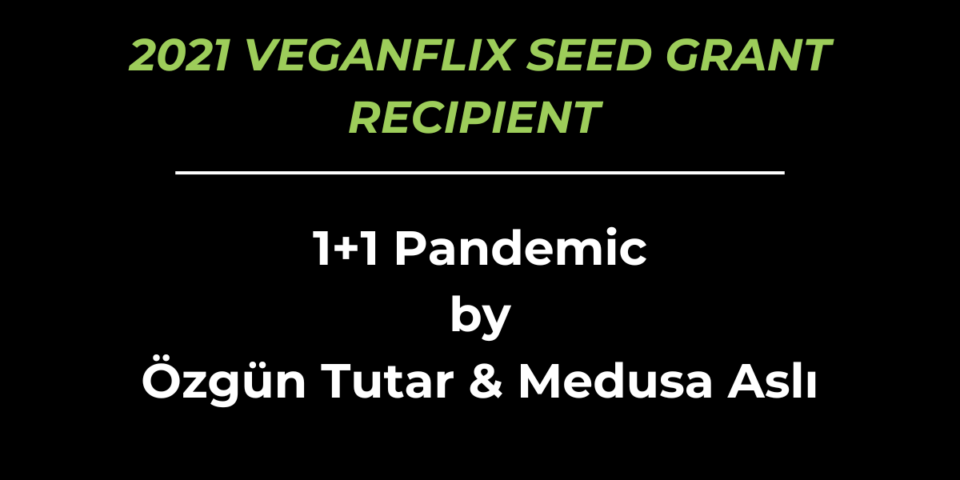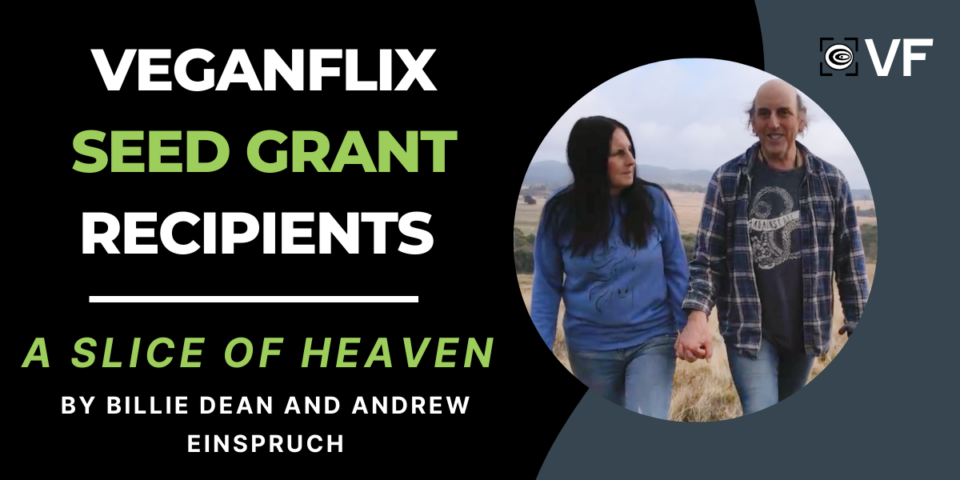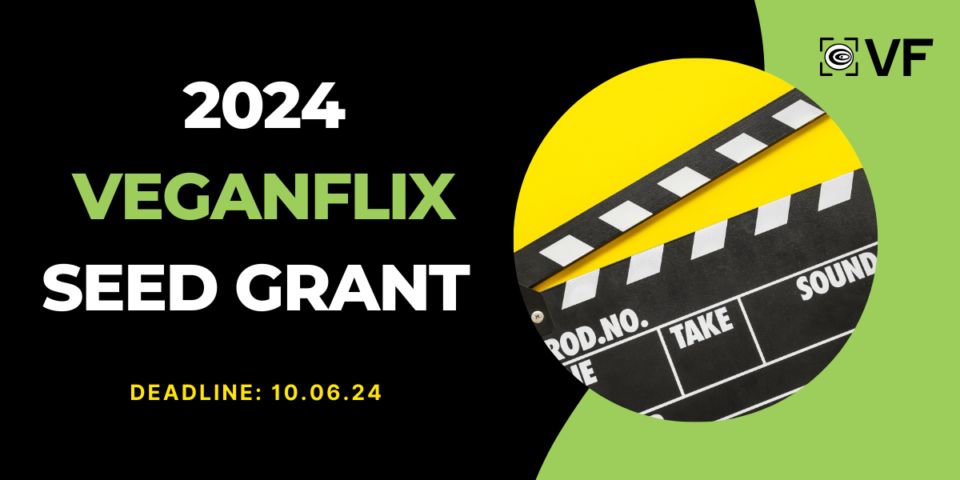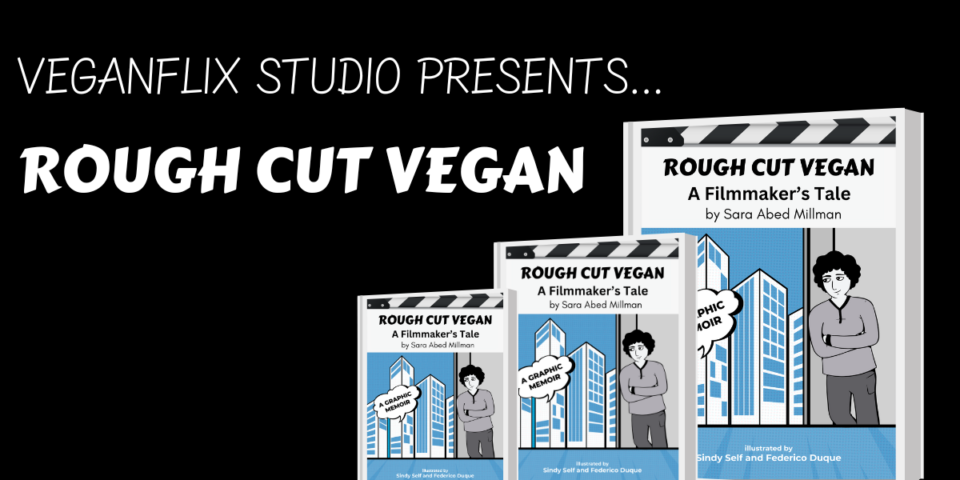Interview with 2021 VeganFlix Video Seed Grant Recipients Özgün Tutar & Medusa Aslı

VeganFlix is excited to be sharing our interview with Özgün Tutar & Medusa Aslı, who are among our 2021 VeganFlix Video Seed Grant recipients. Özgün Tutar & Medusa Aslı are the creators of the sitcom-formatted series 1+1 Pandemic, a contrast-based character comedy on which they designed the set to be 100% vegan. You can check out their work through their Instagram @birartibirpandemi, and enjoy the interview below!
VF: We appreciate you taking the time to connect with us, Özgün Tutar & Medusa Aslı! We’d love to know more about your video/story theme.
Özgün Tutar & Medusa Aslı: 1+1 Pandemic is a sitcom-formatted series designed for the digital platform, consisting of 10 episodes of about 10 minutes. The series, which has the concept of a micro-series, is a contrast-based character comedy. Our main character Deniz, a customer representative, is forced to work from home during a pandemic. With no opportunity to go out, they find themselves trapped in a 1+1 apartment with their roommate Rana. Deniz has to face the psychological burden brought on by the pandemic and Rana’s attitudes that violate Deniz’s personal space.
Just like the script, many aspects of our main character are inspired by our personal experiences and subjective stories. Deniz is a vegan, queer and non-binary. Therefore, the representation of queer and vegan communities in character and space was very important to us. Inclusivity is another issue that we focus on at least as much as representation. We added audio descriptions to the series in order not to exclude hard of hearing and visually challenged individuals and to ensure their equal participation.
We have worked very hard to present the sign language panel to the audience in a size that can be easily followed by the deaf people who cannot read (many deaf people in Turkey can only read and write at a basic level or do not know at all. For this reason, they cannot follow subtitles). At this point, while the examples in the world about the representation of these identities are increasing rapidly, the fact that there is still no correct and real representation in Turkey makes 1+1 Pandemic unique.
During this pandemic, we were struggling, and we have worked very hard on how we can bring the series to life without risking the health of the crew. The characters, locations, and filming schedule were optimized to fully comply with the pandemic conditions, and the filming was carried out in a safe set environment with a compact crew where all precautions were taken for their health. During the filming, which took place in the uncertainty of the zoonotic Covid-19 pandemic, we designed the set to be 100% vegan, including equipment, costumes, and catering, in order to share vegan ethics with the whole crew. In this respect, the vegan set of 1+1 Pandemic broke new ground in Turkey.
VF: How did this idea come to you?
Özgün Tutar & Medusa Aslı: When we were in the quarantine, a situation where we did not know what our future would be, there were moments when we fell into despair like many people. To cheer ourselves up we thought about how we would experience if we entered the same quarantine with our ex-housemate. These parallel-universe stories amused us. We wanted to share these tragicomic scenes with people who were not as lucky as us and had to go into quarantine under unexpected and undesirable circumstances. We think that making people feel good by sharing this story will be one of the ways to get through a process that can be traumatic for millions of people around the world. With this project, we share the hope of healing the mental and physical condition we all are in through humor and laughing.
All film sets in Turkey are non-vegan, and there is only just a few vegan-friendly sets. Unfortunately, it is common for vegans to be verbally and physically bullied by other non-vegan set workers. Sadly, in many stages in the film industry from the scenes we watch to the costumes worn by the actors or the meals served to the set crew, countless living things are harmed. Even in films with the phrase ‘no animals were harmed in this film’, what is meant is simply not killing animals directly in the scene. However, we know that in many of the films with this phrase, cruelty-free make-up materials are used, costumes containing leather or fur are dressed, specially trained circus animals are used and non-vegan meals are served. As a matter of fact, this phrase is only used to set non-vegan people’s minds to rest.
That’s why we, as vegan activists working in the film industry, consider it our duty to end this hypocrisy. That’s why we thought that the concept of vegan sets should actually become ‘norm’, so we designed the 1+1 Pandemic set as 100% vegan. We tried to keep the number of vegans on the set as high as possible and agreed with our non-vegan teammates to act in accordance with vegan ethics during the set. The set we established is a first vegan set in Turkey, but we know and hope that all sets of any scale anywhere in the world should be vegan like this.
VF: What are your current and/or future filmmaking goals?
Özgün Tutar & Medusa Aslı: We have a feature film project called Hydrophobia that we hope to start filming soon. Our project is a thriller about queer vegan character Eren who lives under pressure and her late confrontation with her repressed traumas. Although it does not directly involve vegan activism in terms of its subject, the project was designed to comply with vegan ethics in terms of film content and execution. Because when animal products are shown in a scene in a non-negative sense, animal abuse and violence is portrayed as being justified. That’s why the fact that showing animal products even in an ‘ordinary’ dinner scene is the root of many problems.
We know that the film industry is one of the leading tools that shape the modern culture we live in. As vegan activists working in this industry, it should be one of our priorities to act in accordance with vegan ethics, even in films that do not directly address veganism. In this way, we hope that in addition to vegan activism in our daily lives, we will change more things in the future with such small interventions within the industry.
To give an example, when we shared these concerns with our producer Öykü Canlı (Yumurta Yapım) in the 1+1 Pandemic project, she supported us in setting up a vegan set even though she was non-vegan. Thanks to the experience of the vegan set, she also stated many times that being vegan is healthier, more sustainable, non-exploitative, and economical. With the experience she gained from the 1+1 Pandemic set, she set up the next short film set with vegan catering despite the non-vegan bullies she faced.
This little subjective experience showed us that a vegan set, even on a small scale, can lead to a growing number of good experiences. As a result, the vegan set we experienced for the first time was very important and unique for us as vegan activists. It is a big achievement to see that a vegan set is possible, not only for us, but also for other employees in the sector. We, as vegan sector employees, will of course follow vegan ethics in all our future projects because we know that this is the right, sustainable and necessary way of making films. After all, the future is vegan 🙂
Many thanks to Özgün Tutar & Medusa Aslı! Your commitment to vegan filmmaking is extremely inspiring. Congrats on your series!




